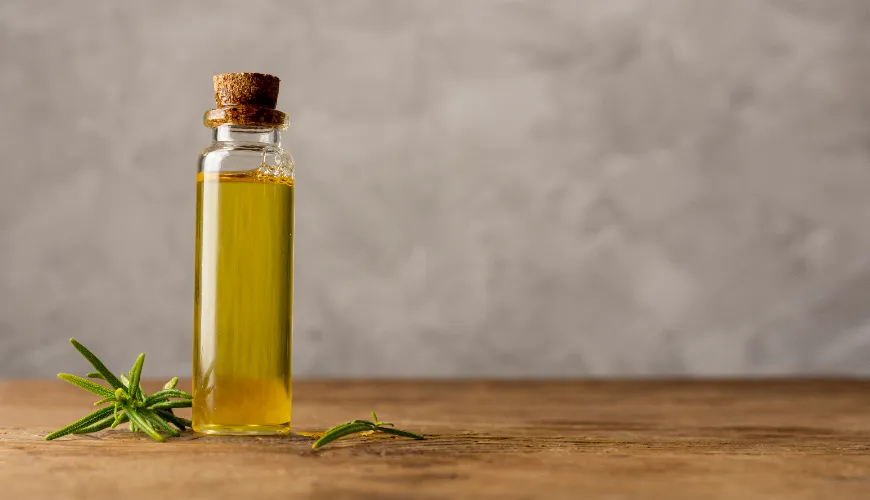
Stewed Carrots for Diarrhea: A Recipe for Quick Relief and Recovery

When the Stomach Has Its Days - Why Stewed Carrots Are a Great Choice for Diarrhea
Everyone knows it – suddenly you don't feel well, your stomach protests, and your body clearly signals that something is wrong. Diarrhea is an unpleasant and exhausting condition that can be caused by many factors – from dietary mistakes and stress to infections. Whatever triggered it, the most important thing is to give your body space to heal. This is where stewed carrots come into play, which are not only easily digestible but also have the ability to support the healing of the digestive tract thanks to their unique composition.
You might ask – why carrots? Why not rice or bananas? The answer is surprisingly simple: carrots contain pectins, fiber, and bioactive substances that can soothe irritated intestines, bind toxins, and adjust stool consistency. And when carrots are prepared gently, such as by stewing, they become an ideal food for digestive issues.
The Magic of Carrots in a Nutshell
Carrots are rich in antioxidants, especially beta-carotene, which the body converts into vitamin A. This is important for proper immune system function and also for the regeneration of mucous membranes, including those in the intestines. Additionally, they contain soluble fiber, which helps absorb excess fluid in the intestines – exactly what we need during diarrhea.
What is truly fascinating is the ability of stewed carrots to form a gentle gel-like coating that covers the inner walls of the digestive tract. This effect, known from the so-called "Moro's carrot soup," was discovered as early as 1908 by pediatrician Ernst Moro. He found that a simple soup of long-stewed carrots dramatically reduced the mortality of children from bacterial diarrhea. Today we know that during slow cooking, oligosaccharides are formed, which block harmful bacteria from attaching to the intestinal wall. It's literally a natural antibiotic – without side effects.
Recipe for Stewed Carrots for Diarrhea
Preparing stewed carrots for a sick stomach is not rocket science, but the correct procedure determines the effectiveness of the dish. The goal is not just to cook the vegetable, but to allow the formation of beneficial substances that aid healing.
Ingredients:
- 500 g of carrots
- 1 liter of water
- A pinch of salt (optional)
- 1 small teaspoon of quality olive oil (optional, suitable for children or underweight individuals)
Instructions:
- Peel the carrots and cut them into small pieces or coarsely grate them.
- Put them in a pot with water and bring to a boil.
- Reduce the heat and let the carrots stew very slowly for at least 90 minutes. The longer, the better – ideally 2 hours.
- Stir occasionally and add a little water if necessary to prevent the carrots from burning.
- After cooking, you can lightly mash the mixture or just mash it with a fork to create a smooth puree.
- Add olive oil at the end if needed to increase the energy value.
The resulting mixture should be creamy, smooth, and without coarse pieces – ideal even for small children. The taste is slightly sweet due to the caramelization of natural sugars during slow stewing. If the patient is really sensitive to any food, it is recommended to start with just a few teaspoons and gradually increase the portions.
Why Do Carrots Work Better Than a Regular Diet?
Most people automatically reach for crackers, white bread, rice, or bananas during diarrhea. While these foods don't irritate the stomach, they often don't provide any active substances that would support regeneration. Stewed carrots, on the other hand, offer not only gentleness but also active action on the intestines.
Moreover, their preparation is cheap, simple, and carrots are available year-round. There's no need for exotic ingredients or nutritional supplements. After all, as the old saying goes: "In simplicity, there is strength." And especially during illness, we often find that simple things really work best.
When to Be Cautious with Stewed Carrots
While carrots are generally considered a safe and gentle food, there are situations where it is good to consult their use with a doctor. If diarrhea is accompanied by a high fever, blood in the stool, or lasts more than three days, a deeper cause should be sought. In such cases, targeted treatment may be necessary, and diet alone is not enough.
For infants who are not yet on regular food, consultation with a pediatrician is recommended, especially if the child is dehydrated or significantly fatigued.
How to Enhance the Effect of Stewed Carrots
Part of the treatment for diarrhea should always be adequate hydration. During diarrhea, the body loses not only water but also minerals and electrolytes. The ideal combination is stewed carrots and rehydration solutions, which can be prepared at home or purchased at a pharmacy. Other suitable beverages include weak chamomile tea, water with a drop of lemon, or quality vegetable broth.
For adults, another option may be a combination with stewed rice or boiled potatoes without fat and spices. Once the condition improves, other foods can gradually be added.
A Real Story Confirming the Effect
Mrs. Ivana, a mother of two from Brno, shared her experience: "When my son had a stomach virus in kindergarten, he didn't want to eat anything and was vomiting. The doctor recommended just tea and stewed carrots. At first, I didn't believe it, but by the second day, his condition stabilized. Today, I always have a supply of carrots at home – just in case."
This example shows that natural solutions are often the most effective. And stewed carrots are a beautiful proof that traditional cuisine can be modern medicine.
A Small Trick at the End
If you want to increase the effectiveness of stewed carrots, try adding a small piece of fennel or caraway during stewing. These herbs help reduce bloating and support digestion. Not only do they give the dish a gentle flavor, but they also enhance its healing effect.
Stewed carrots thus become more than just a dish – they are a natural balm for sensitive digestion, which can help the whole family in those less pleasant days. And there are quite a few of them in a year.

